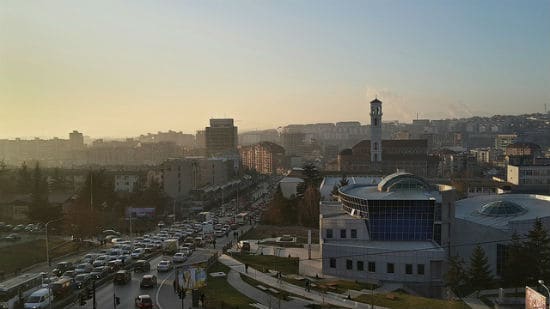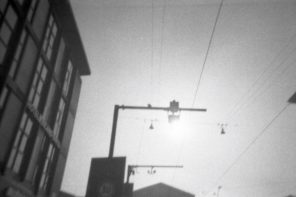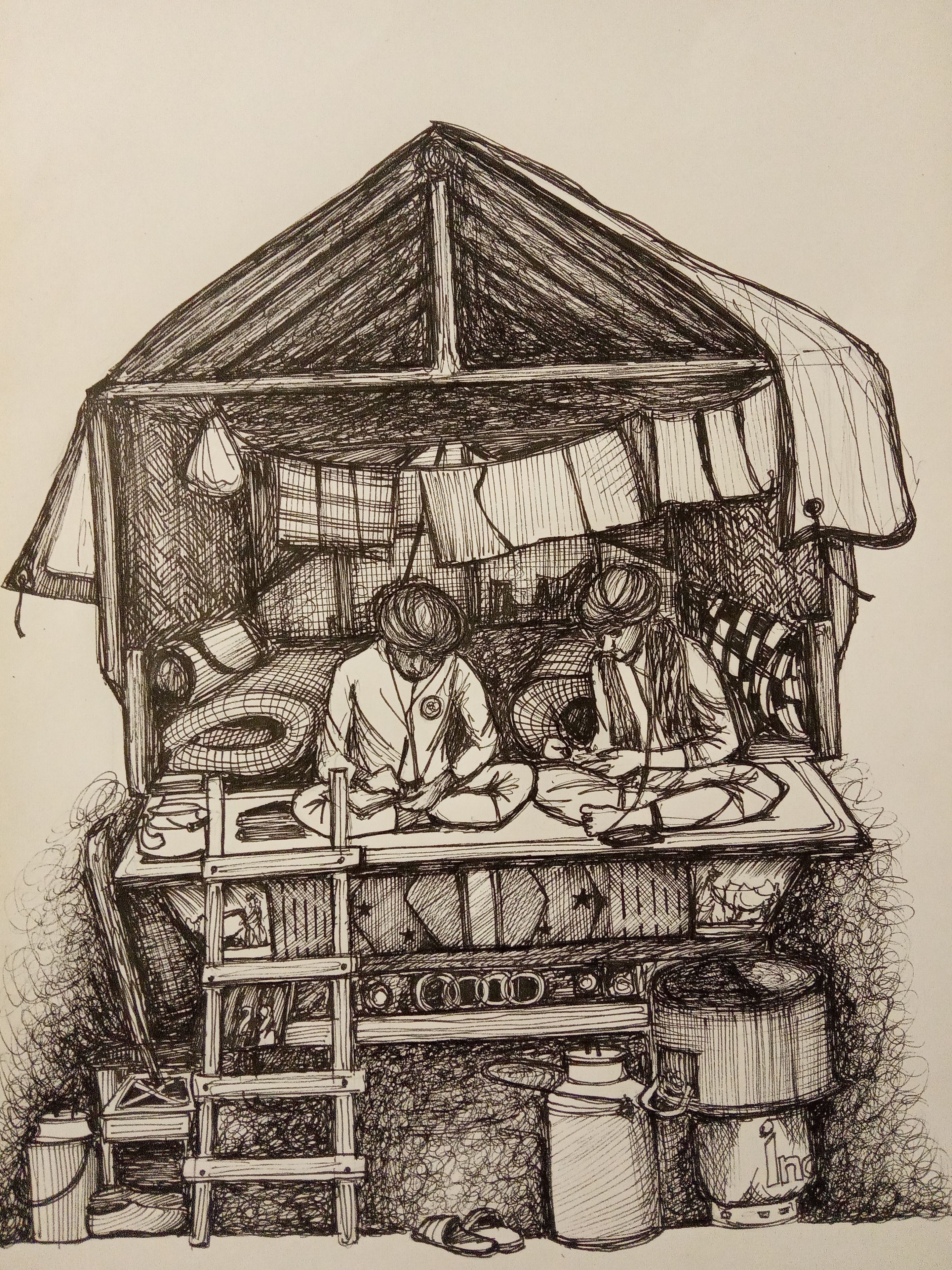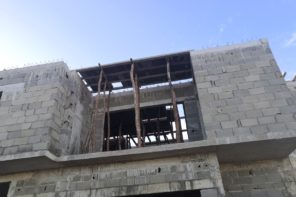To say that a PhD in anthropology represents a journey is equal parts cliché and “social fact,” at least for some students. In this short blog post, I will first present a narrative journey of a PhD candidate in anthropology from the beginning of their programme of study to fieldwork, the thesis defence and, finally, the commencement of the post-doctoral period.
Through this description, the journey can be seen as a dialogue with uncertainty.
With a general context established, I will then describe the role played by online blogging in shaping my experience as a doctoral student, in which blogging, as a form of writing, emerges as a creative means of addressing the uncertainty of the PhD process.
In the beginning, the fledgling scholar emerges from the comforting cocoon of their previous studies, either within anthropology or another discipline, into a simultaneously erratic and directed context, in which, as Samimian-Darash and others write, the measures taken to bring more control instead prompt additional uncertainty (Samimian-Darash 2013; Zeiderman 2015; Zeiderman et al. 2016). The activities and contingencies planned for the eventual fieldwork begin to pile up, as the candidate pours through journal articles and scholarly books deemed necessary for their future endeavours and perhaps constructs a research proposal for review, an early instance of bureaucratic regulation faced in their career.
And so the narrative continues, and the at-first eager pilgrim, after a series of zealous steps, enters into the threshold of a spatiotemporal “waiting room”. The concept was first utilised by Jansen to describe perceptions held by Sarajevans of living in a spatially-defined city where the future is undefined and movement towards it feels non-existent (Jansen 2015; Jansen et al 2016). In this instance, rather than using the image to describe a post-Yugoslav city, I use it to describe an experience of fieldwork, a space both of fluidity and an unpredictable trajectory, where the people and concepts encountered often shift the student-anthropologist’s perceptions of identity, as they come to terms with their new, yet often temporary, surroundings.

Pristina, Kosovo. Photo by Vegim Zhitija (flickr.com, CC BY-SA 2.0)
Here, in this time period often described as a ritual rite of passage, the pilgrim faces challenges to their perhaps formerly firm views of life, as in a tense encounter with someone new or in the shape of ambiguous conceptual forms, recently-met ideas that lie just beyond understanding and on the edge of comprehension.
The planned measures and (perhaps obsessively) perused texts provide little preparation for what the student-fieldworker often encounters.
The once-mythical field site is located in the fore, as, rather than being a location in the candidate’s near future, its joys and difficulties are negotiated daily. Meanwhile, the protagonist’s movement towards their eventual destinations, the thesis defence and the doctorate, appears doubtful and static.
After coming face-to-face with their “new” environments, the formerly eager and now hardened traveler returns from their pilgrimage to the university, a site referred to wistfully and disparagingly in many circles as the academy. Now, they arrive at the threshold of the deadline where, officially, they have the freedom to create and be innovative, but, practically, thanks to the academy’s neoliberal transformations, they are limited by the spectre of funding withdrawal and the confining walls of accepted buzzwords and rhetorical images. The link between neoliberalism and academic images can be seen in the necessity of writing with concepts that are attractive to prospective employers, publishers and funding bodies, entities whose priorities are increasingly driven by the demands of producing quantified and marketable “impacts.”
We must create, but only within circumscribing boundaries. After all, we want to be employed someday, right?
Hence, between bouts of ambitiously accelerated writing and fruitless fog, the weary pilgrim arrives at the threshold of the thesis defence (or “viva,” in the United Kingdom), a mystical room of requirements at the conclusion of the PhD programme. During the defence, the candidate has what in the UK is frequently described as an intense-yet-friendly conversation which, strangely enough, often provides the most direction the pilgrim has experienced throughout their entire process in the form of structured feedback. However, the defence’s place in time represents a definitive blip amidst an ambiguous trajectory, as the former-candidate-now-doctor becomes enmeshed in a reproducing milieu of article deadlines and applications for fixed-term post-doctorate fellowships, where the limiting boundaries first experienced during the PhD become codified as impact factors, writing guidelines and indicators of future success. Fixed-term academic positions come and go, and the murky fog faced during the PhD process re-configured with the post-doctorate experience.
Thus far, I have presented a narrative of the PhD to post-doctorate experience in socio-cultural anthropology, and, in the process, I portray a general context of uncertainty. In the following section, I reflect further on this context by drawing on my experiences as a PhD student and particularly my use of blogging during fieldwork. During my fieldwork, blogging with Allegra was a creative means to engage with and reflect on my field site, an activity which both confronts uncertainty and utilises it for prompting ethnographic insights.
In terms of my PhD process, “writing out” my thoughts presented a means of clarifying my interpretations of Pristina, Kosovo’s capital city and my field site.
In a context where I was exploring interactions between Prishtinalis in public spaces, I became familiar with the café as a site of such interpersonal dialogues, and, consequently, I wrote about it (and in particular, the coffee cup) as part of a piece for Allegra’s AVMOFA. At the time, I used the experience to distill the ethnographic observations both within my field notes and in my head into a short body of work for others to read. In doing so, I attempted to transplant the encounters I had with people as part of my life within the city and crystallise the amorphous forms that I began to encounter, both in conversation with others in Pristina and in my field notes.
Although this process is characteristic of writing in general, it occurred differently when blogging, as I was able to publicise my thoughts to others, both anthropologists and generally interested readers, outside a set academic hierarchy. This difference makes blogging distinct from publishing a scholarly article, for example, as the writer is less affected by the publisher’s demands, and it is different from jotting down thoughts in field notes, as the final text can be read and commented upon by others. For the doctoral student, the benefit is that the writing can occur while the research is still being undertaken, while scholarly articles and books are often written long after the burgeoning anthropologist has “left” the field site.
Blogging with Allegra proved to be quite fruitful, in the pragmatic sense that it prompted me to reflect on my fieldwork surroundings and explore abstract ideas in a creative way. However, in a more abstract sense, the activity also allowed me a means to confront the precariousness I was feeling as part of my “pilgrimage” from my university to Pristina and back. The letters being typed, deleted, and typed again, as part of stuttering sentences, made the uncertainty appear just certain enough that I realised what it was that I would soon be writing about as part of my return journey to the academy.
When I wrote “Caffeinated Politics,” I was primarily interested in the café as a space for social interactions between acquaintances. I began to perceive it as a space where actors projected rhetorical images towards others, often in order to modify their relationships with people they were in conversation with. For example, the phrase e shti dorën më zjarrin (meaning “to put your hand in the fire”) refers to a performance of steadfastness, where the actor displays their trustworthiness within view of others as a persuasive attempt to gain another’s respect and thereby their acquaintance. These performances play out in the city’s public spaces such as cafes and often occur alongside images bolstered by Prishtinalis through projected images referred to as “masks,” or representations meant for nearby onlookers to view. As explained to me by informants, these masks are impressions that are consciously formed by actors through techniques such as fashion choices and practices like making a point to pay for a drinking partner when in a cafe.
Indeed, when I was writing the dissertation, I had started to become aware of the images that were being projected around me in Pristina’s cafes. As I write in the blog post’s final line, “As I sit silently in this café, slowly drinking my makiato and watching the discussion to my left unfold, I wonder whether I’m actually interpreting what I’m seeing or if I’m simply projecting images.” Although I had begun to make inferences from my encounters, there was still much doubt in terms of whether those observations were merely illusions caused by my then-recent arrival in the city. In a way, this illustrates an effect of the blog post in that, although I had begun to interpret my surroundings in Pristina, putting the observations on “paper” (or, in this case, the computer screen) revealed their fragility.

Photo by Max Radomskii (flickr.com, CC BY-ND 2.0)
An example is this statement, which appears as a preliminary observation of my fieldwork thus far: “In effect, my fieldwork on rhetoric and politics in Pristina is also very much about space, perhaps even more than before my arrival.” As I write earlier, I was still new in Pristina and unsure of my surroundings. By putting this observation into writing, I distilled my thoughts into a digestible format for others as well as myself. However, although the statement resonates with my dissertation on protest and public space, it reads as if I have just become acquainted with my new themes.
In effect, the blog post illustrates a tension between an attempt by the anthropologist to write down their observations and the ambiguous haze they enter into dialogue with. In many ways, the writing process generated more confusion, as it prompted me to question further during my fieldwork how the café, as a material location in public space, affected, and was impacted by Prishtinalis’ rhetorical performances and dialogues.
This reflective process, centred around the blog post, prompted me to engage with my research material which ultimately prepared me for the long-process known as the “writing up” period. During this long stretch of my journey, I wrote piece after piece of my dissertation, eventually completing it and passing through the vaunted viva (Diming 2016).
However, the foundation for the dissertation was laid during the fieldwork in Pristina, a process that in some ways could be seen as an attempt to become more confident about uncertainty.
For my intellectual and academic development, the creative space provided by Allegra allowed me an opportunity to present my first observations and fieldwork-related thoughts in a way which allowed me to “write out” what I was thinking in a flexible way, where, in writing about what was effectively a coffee cup, I was able to contribute to my own understandings as well as a collection of other items “found” by Allegra bloggers. It was an outlet to reflect on my uncertain, fieldwork surroundings in a constructive way outside of the academic institution and its buzzwords, as part of the pilgrimage to the field site and back.
And here, following the PhD journey and past the defence, I return to the blog in an effort to reflect on an uncertain context, build ideas and reflect again.
Works Cited
Diming, C. J. (2016) “From the Café We Went to War”: Political Manoeuvring and Protest in Pristina’s Public Spaces. Durham.
Jansen, S. (2015) Yearnings in the Meantime: ‘Normal Lives’ and the State in a Sarajevo Apartment Complex. Oxford: Berghahn Books.
Jansen, S., Brkovic, C. and Celebicic, V. (2016) ‘Introduction: New Ethnographic Perspectives on Mature Dayton Bosnia and Herzegovina’, in Jansen, S., Brkovic, C., and Celebicic, V. (eds) Negotiating Social Relations in Bosnia and Herzegovina: Semiperipheral Entanglements. London: Routledge, pp. 1–27.
Samimian-Darash, L. (2013) ‘Governing Future Potential Biothreats’, Current Anthropology, 54(1), pp. 1–22.
Zeiderman, A., Kaker, S. A., Silver, J. and Wood, A. (2015) ‘Uncertainty and Urban Life’, Public Culture, 27(2), pp. 281–304.
Zeiderman, A. (2015) ‘Spaces of Uncertainty: Governing Global Environmental Hazards’, in Samimian-Darash, L. and Rabinow, P. (eds) Modes of Uncertainty: Anthropological Cases. Chicago: University of Chicago Press, pp. 182–200.









